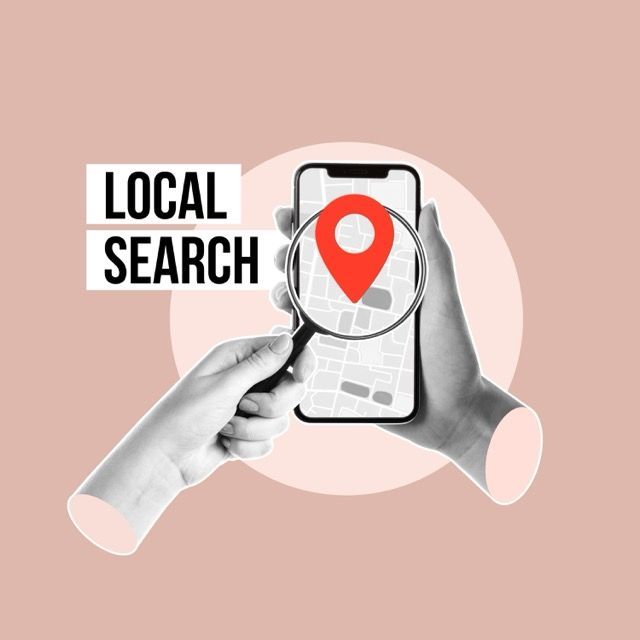Local SEO Guide to Grow Your Healthcare Practice
Are you finding it difficult for potential patients to discover your healthcare practice online? With so many healthcare providers vying for attention, standing out in local search results can feel like an uphill battle. Without a proper strategy in place, your practice might be missing out on valuable new patients.
This is where local SEO comes in. In this blog post, we'll guide you through the essential steps to improve your healthcare practice's online visibility and attract more local patients. By the end, you'll have actionable insights that will help your practice rank higher in search results, boost website traffic, and grow your patient base. Ready to transform your practice’s online presence with local SEO? Let’s dive in.
1. Understanding the Importance of Local SEO for Healthcare
Local SEO is crucial for healthcare practices because it helps ensure that your services appear in front of people searching for healthcare providers in your area. Whether you're a dentist, physical therapist, or general practitioner, the goal of local SEO is to make sure your practice shows up in local search results, map listings, and directories when potential patients are looking for care nearby.
Think about how people search for healthcare services today. Most patients turn to search engines like Google to find a provider close to them, often typing in queries like “family doctor near me” or “pediatrician in [City Name].” If your healthcare practice isn’t optimized for local SEO, you’re likely missing out on a significant number of local patients. Local SEO ensures that your practice is visible to those searching for your specific services in your geographical area.
Without a strong local SEO strategy, your practice could be losing potential patients to competitors who are ranking higher in search results. By focusing on local SEO, you can increase your visibility and make it easier for patients to find you.
2. Claim and Optimize Your Google Business Profile
One of the first steps in any local SEO strategy is to claim and optimize your Google Business Profile (formerly Google My Business). This profile is essential because it’s often the first thing potential patients will see when they search for your practice or healthcare services in your area.
To optimize your Google Business Profile:
- Claim Your Listing: If you haven’t already, claim your practice’s Google Business Profile. This allows you to manage the information that appears when people search for your practice on Google.
- Complete Your Profile: Ensure that all the fields are filled out with accurate information, including your business name, address, phone number, hours of operation, and website link.
- Choose the Right Categories: Select categories that accurately describe the services your practice offers, such as “family doctor,” “dermatologist,” or “physical therapist.”
- Add Photos: Include high-quality images of your practice, staff, and services to make your profile more engaging.
- Encourage Reviews: Positive reviews are crucial for local SEO. Encourage satisfied patients to leave reviews, and be sure to respond to them professionally.
By maintaining a complete and optimized Google Business Profile, you’ll not only improve your local SEO but also enhance your practice’s credibility in the eyes of potential patients.

3. Optimize Your Website for Local Keywords
To improve your local SEO, it’s essential to optimize your website with local keywords that reflect your healthcare services and the geographical area you serve.
When potential patients search for healthcare providers, they typically include location-based keywords in their queries, such as “pediatrician in [City Name]” or “physical therapy near [Neighborhood].”
Here’s how to optimize your website for local keywords:
- Research Local Keywords: Use tools like Google Keyword Planner or SEMrush to identify relevant local search terms. Focus on keywords that include your specialty and location, such as “urgent care in [City Name].”
- Update Title Tags and Meta Descriptions: Incorporate your local keywords into the title tags and meta descriptions of your website’s key pages, such as your homepage, services pages, and contact page.
- Add Location Pages: If your practice serves multiple locations, create separate location pages for each area. This helps search engines understand the specific regions you serve and increases the chances of ranking for local searches.
- Optimize Your Content: Naturally incorporate local keywords into your website’s content, such as blog posts, service descriptions, and “About Us” pages.
By optimizing your website with local keywords, you’ll make it easier for search engines to connect your practice with relevant local searches.
4. Build Citations and Directory Listings
Citations are online mentions of your practice’s name, address, and phone number (NAP) across the web. These citations are crucial for local SEO because they help search engines verify the accuracy and legitimacy of your practice’s information.
Here are some key steps to build and maintain citations:
- List Your Practice on Local Directories: Submit your practice to reputable online directories such as Healthgrades, Zocdoc, Yelp, and Yellow Pages. Ensure that your NAP information is consistent across all platforms.
- Monitor Your Listings: Regularly check your listings to ensure that your information remains accurate, especially if you’ve moved locations or changed your contact details.
- Avoid Duplicates: Make sure there are no duplicate listings for your practice on the same directory, as this can confuse search engines and hurt your local SEO efforts.
Building citations from authoritative directories will boost your practice’s local SEO and improve your credibility with search engines.
5. Leverage Patient Reviews for Local SEO
Patient reviews play a significant role in local SEO, as they signal to search engines that your practice is trustworthy and provides quality care. Google favors businesses with higher ratings and positive reviews, so encouraging your patients to leave reviews can directly impact your local search rankings.
Here’s how to leverage patient reviews:
- Ask for Reviews: After an appointment, send a follow-up email or text message asking satisfied patients to leave a review on Google or other review platforms.
- Respond to Reviews: Show that you care about your patients by responding to both positive and negative reviews in a professional and timely manner.
- Highlight Reviews on Your Website: Showcase positive patient reviews on your website to build trust with potential patients and improve your local SEO.
Consistently earning positive reviews will not only enhance your online reputation but also improve your practice’s visibility in local search results.
Local SEO is essential for healthcare practices that want to attract more patients in their area. By optimizing your Google Business Profile, incorporating local keywords into your website, building citations, and leveraging patient reviews, you can significantly improve your practice’s online visibility and stay ahead of the competition.
If you’re ready to take your healthcare practice’s online presence to the next level,
book a call with us at
EDNA Digital Marketing. Our team of experts can help you implement a tailored local SEO strategy that drives real results for your practice. Let’s work together to transform your online visibility and attract more local patients!










